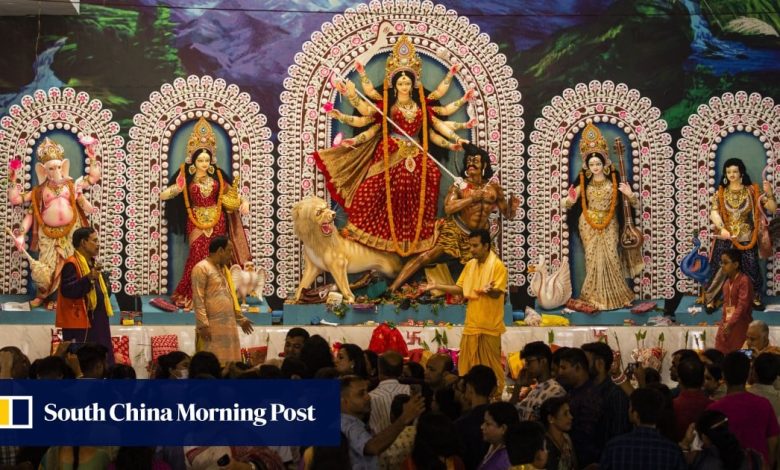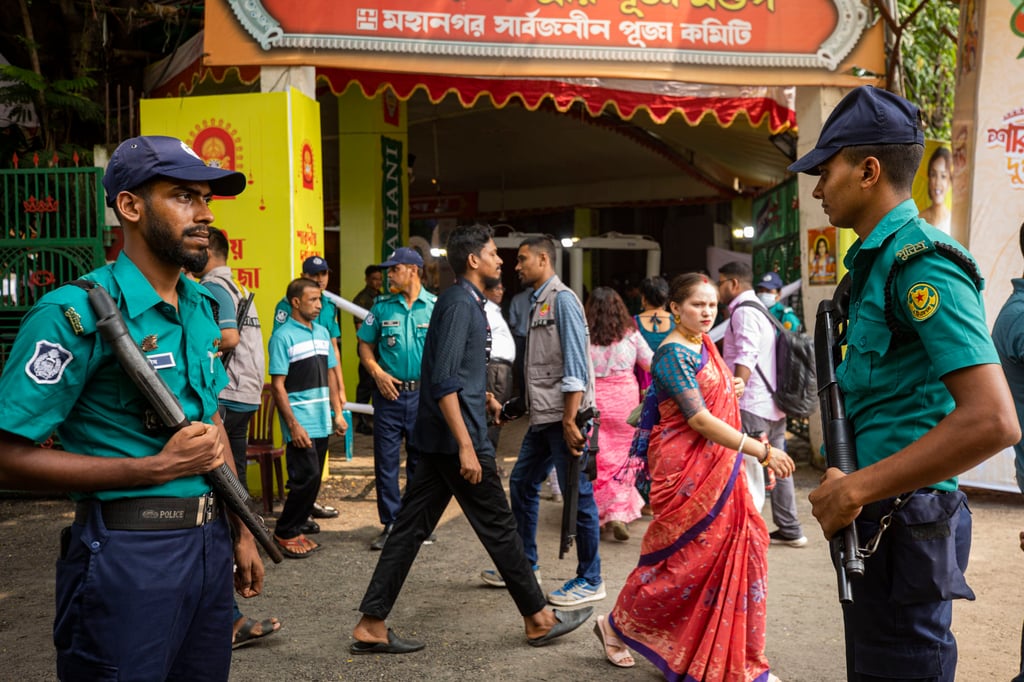Bangladesh’s Hindus celebrate despite violence against minority groups

Teacher Supriya Sarker is glad to celebrate Bangladesh’s largest Hindu festival of Durga Puja but feels the festivities would be more jubilant without the fear and violence that overshadow this year’s event.
The weeklong celebration that ends in the Muslim-majority Bangladesh on Sunday with immersions of the Hindu Goddess has strained the Hindu community with reports of vandalism, violence, and intimidation in parts of Bangladesh, which has seen harassment and attacks on Hindus, who make up about 8 per cent of the country’s nearly 170 million people, or more than 13 million people.
Despite pledges to keep the festival safe, this year’s celebration was subdued following the ousting of former Prime Minister Sheikh Hasina and attacks on minority groups, especially Hindus. Hasina left the country for India because of a mass uprising spearheaded by a student-led anti-government movement.
Bangladesh’s current interim leader, Nobel laureate Muhammad Yunus, has faced serious challenges in maintaining law and order since he took over in August, and Durga Puja was seen as an acid test of his administration’s ability to protect minority groups.
Minority communities have blamed the Yunus-led government for failing to adequately protect them, and reports suggest that hardline Islamists are becoming increasingly politically influential and visible since the fall of Hasina.

“It is a challenging time for us Hindus,” said Sarker, the teacher, as she joined the Kumari Puja in Dhaka’s Uttara district. “We faced problems in the past as well, but we did not see such escalation earlier. This is our country, we want to live here peacefully with our Muslim brothers and sisters and others without discrimination or intimidation.”

